Iran's President Calls For Action On Abortions Amid Population Decline
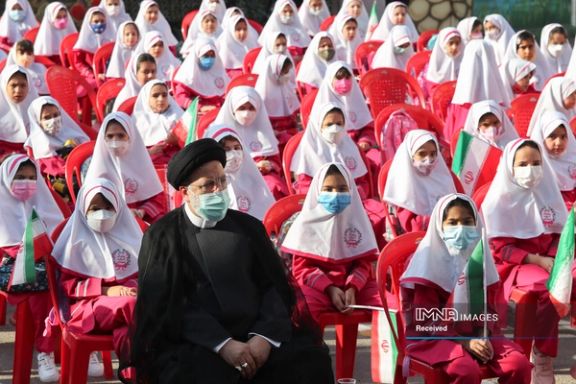
Iran's President, Ebrahim Raisi, has urged action against voluntary termination of pregnancy by women, as the birth rate has significantly fallen in the past decade.

Iran's President, Ebrahim Raisi, has urged action against voluntary termination of pregnancy by women, as the birth rate has significantly fallen in the past decade.
He said on Sunday that there is a need for a "serious confrontation with abortion as an ugly phenomenon" through "religious teachings and artistic productions."
Amid the prevailing economic hardships, which have left many struggling to meet their basic needs, Raisi expressed concern about the downward trajectory of the population. He urged government agencies to harness their resources and capabilities to bolster population growth.
Over recent decades, Iran has witnessed a steady decline in childbirth rates, with the population growth rate dropping from 4.8 percent in the early 1980s to below one percent in recent years.
Supreme Leader Ali Khamenei has called for efforts to boost Iran's population as a top priority and an essential policy for the Islamic Republic, given its position as a leading Shia country in the Muslim world.
In response to Khamenei's directive, the predominantly hardliner-dominated parliament passed a law in March 2022 mandating state entities to actively promote marriage and childbirth. The law also prohibits public health services from offering family planning options.
Critics of the population increase policy argue that the Islamic Republic has failed to improve living standards, with nearly 50 percent of the population living below the poverty line. Many others continue to face escalating economic hardships despite holding multiple jobs.
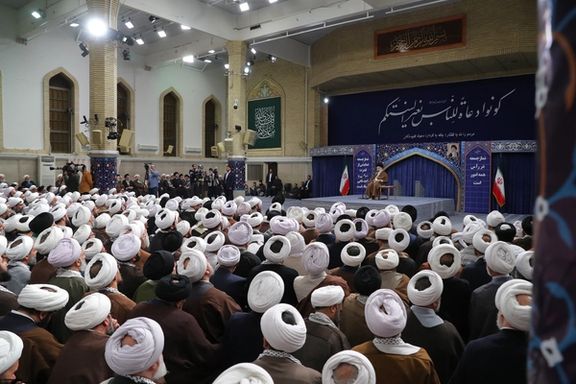
As the hijab issue divides the people and the government in Iran, politicians also debate its impact on the regime’s legitimacy and the upcoming elections in March.
While hardline clerics take advantage of every opportunity to condemn women who defy compulsory hijab, other more pragmatic or opportunistic figures, including Supreme Leader Ali Khamenei are attempting to court women's support in the lead-up to the parliamentary and Assembly of Experts elections.
Khamenei, without specifically addressing the hijab issue, said in a recent speech that "Not adhering to religious obligations in maintaining one’s appearance does not necessarily reflect a lack of belief in the regime."
However, in a meeting with a selected group of veiled women, Khamenei defined women's political participation as "encouraging” their husbands and children to actively take part in the election. The vernacular word Khamenei used for "encouraging" was "vadar kardan" which also implies obliging someone to take a specific action. He added that "women can play a part in this area both at their homes and in the streets."
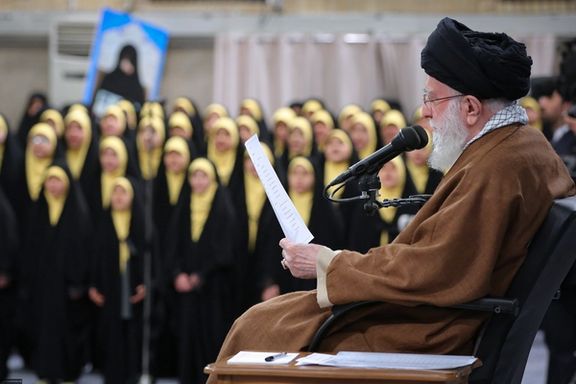
Guardian Council spokesman Tahan Nazif also implied that women without hijab may vote at the polling stations. He said: "No one should be denied their right to vote. The issue of hijab should not divide the people."
According to Ayatollah Hossein Mousavi Tabrizi, the secretary of the association of seminary teachers, the number of women who defy hijab in Qom, the home of the main Shiite seminary and the most religious town in Iran is "eye-catching".
Tabrizi said that defying compulsory hijab is now a symbol of expressing opposition to the government. The cleric added that women from both old and new generations defy the compulsory hijab in the religious center.
He further added that many people in Iran do not believe in the religious rules, adding that on the other hand, religious propaganda in Iran is not consistent with the people's beliefs and customs, although some of the people defy hijab only to show their opposition to the system.
Recently, the police chief in Qom revealed that approximately 74,000 warning text messages had been issued to women defying compulsory hijab since the start of the current Iranian year in March 2023. Additionally, 1,968 women were referred to the court during this period to pay penalties for violating hijab rules, marking a six-fold increase compared to the previous year.
Sociologist Mohammad Reza Javadi Yeganeh expressed concerns that confiscating women's vehicles as punishment for defying hijab could lead to desperation within families, fueling hatred toward the system and potentially sparking civil unrest.
The rise in cases of hijab defiance in a religious city like Qom has been seen by some as a failure of the government's hijab policy. This difference in perspective may explain the disagreement between Mousavi Tabrizi, a former general prosecutor, and hardliners regarding their treatment of women who defy hijab.
In another development, the Friday Prayer Imam of Mashhad, firebrand cleric Ahmad Alamolhoda said in his sermons on January 26, that defying hijab will be eradicated only if the people want it. Meanwhile he called the defiance a mischievous conspiracy by "the enemies." Many Iranian officials, including in law enforcement, have blamed foreign enemies for women rejecting the hijab. But they also blame an expected low turnout in the election on “the enemy,” and not the regime’s economic failures and repression.
Last year, Alamolhoda, who is President Ebrahim Raisi’s father-in-law, opined that the fundamentalist hijab bill prepared by hardliners in the parliament was not good enough to eradicate “the non-Islamic behavior” of Iranian women. Strongly criticizing the bill, Alamolhoda said if it passed, it would promote unveiling rather than prevent it.
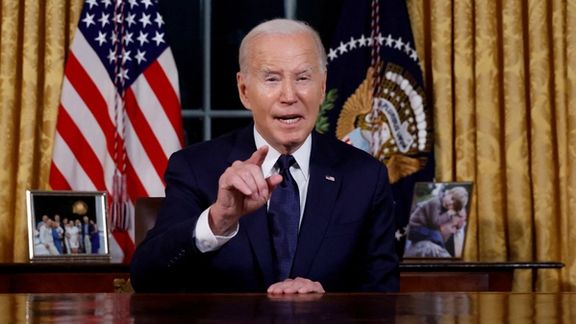
President Joe Biden said the US will respond to an Iran-backed attack on its forces in Jordan, after he announced the news that three US troops were killed.
"We shall respond," he said at a campaign event in South Carolina, asking for a moment of silence. Biden earlier blamed Iran-backed groups for the attack that occurred Saturday night.
“While we are still gathering the facts of this attack, we know it was carried out by radical Iran-backed militant groups operating in Syria and Iraq,” the President said in a statement released by the White House.
At least 34 personnel were being evaluated for possible traumatic brain injury, a US official told Reuters.
"While we’re still gathering facts, this is most assuredly the work of an Iranian-backed militia group," a second official said.
US lawmakers began to react to the news by demanding a tough US reaction to what they see as a major escalation by Iran.
US Senate Republican Leader Mitch McConnell (R-KY) issued a statement, urging the President to be decisive. “Last night, the cost of failure to deter America’s adversaries was again measured in American lives. We cannot afford to keep responding to this violent aggression with hesitation and half-measures," the statement reads.
Senator Tim Scott (R- S. Carolina) issued a tweet saying, "The Biden administration’s appeasement of Iran must end. It’s time for clear and decisive action, and Iran must be held accountable for the malign activities of its proxies."
Senator Dan Sullivan of Alaska fired off a tweet saying, "The President needs to order a clear, lethal and overwhelming response that demonstrates to Iran and to the world that whoever targets our men and women in uniform—or supports these attacks—will face the full might of the U.S. military."
The deaths marked the first fatalities of US troops in the region since war began in Gaza. Biden said the attack occurred on Saturday night. Iranian backed proxy militia forces have launched more than 150 attacks in Syria and Iraq targeting US forces since mid-October.
The attack is a major escalation of the already tense situation in the Middle East, where war broke out in Gaza after Palestinian Islamist group Hamas' attack on Israel on Oct. 7 which killed 1,200, mostly civilians.
Thousands have also been killed in the subsequent Israeli military operation in Gaza, although there is no independent and reliable figure.
While Iran has avoided direct military involvement in the Gaza war, its strategy seems to be using proxy forces to harass the US and Israel.
Iran International reported on Saturday that according to a diplomatic source, the Biden administration is discussing with European allies a scenario to increase sanctions on the Islamic Republic. Iran’s aggressive regional policies since October seems to be the reason the White House has decided to adopt a tougher stance against Tehran.
The US has launched a few retaliatory attacks against militia forces in Iraq and Syria, but the attacks have continued. Critics of President Biden’s Iran policy argue that the United States should directly target Iranian interests to deter Tehran’s proxies.
Iranian backed Houthi forces in Yemen have also launched dozens of missile and drone attacks against commercial vessels and Western warships in the Red Sea area. Commercial maritime traffic has suffered as a result.
While the United States has thus far maintained an official line that Washington is not at war in the region, and does not seek escalation, it has made strikes against targets of Yemen's Houthi forces.
"We will carry on their commitment to fight terrorism. And have no doubt - we will hold all those responsible to account at a time and in a manner of our choosing," Biden said in his statement released by the White House.
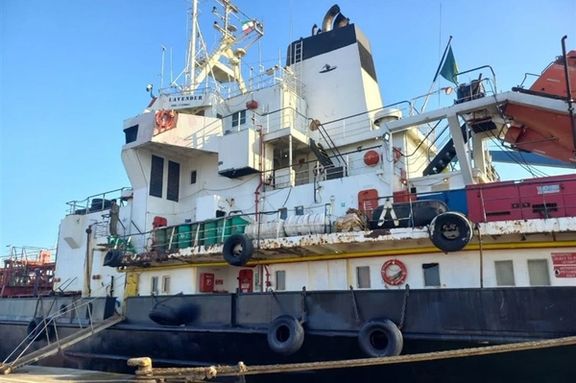
Iran has seized a foreign vessel carrying two million liters of smuggled Diesel fuel near the southern port city of Bushehr.
Commander Heidar Honarian-Mojarrad of the Second Naval Region of the Islamic Revolutionary Guard Corps said on Sunday that “The vessel, flying the flag of a country from Oceania, was apprehended 60 miles off the coast of Bushehr port under a judicial order. Fourteen foreign crew members from two Asian countries were detained following the identification of the smuggling activity.”
Honarian announced the completion of legal procedures and the transfer of the vessel's crew to the judicial authorities of Bushehr province. He claimed that the confiscated contraband fuel is being handed over to the National Oil Refining and Distribution Company of Bushehr province in compliance with the law.
He also added that the vessel had been under surveillance since loading fuel and was intercepted upon entering the operational area of the Second Naval Region of the Revolutionary Guards. He did not provide any information as to where the vessel loaded the fuel and where it was traveling to.
Iran's role as a major oil producer and its provision of globally low petrol prices contribute to fuel trafficking activities in the region. Iranian forces regularly target tankers involved in fuel transportation in the Gulf.
The incident follows a similar occurrence in September when Iran seized two oil tankers flying the flags of Panama and Tanzania for allegedly smuggling fuel in the Gulf.
The heightened presence of the US military in the Gulf has also been noted, with accusations against Iran for seizing or attempting to seize vessels in the strategic shipping lane.
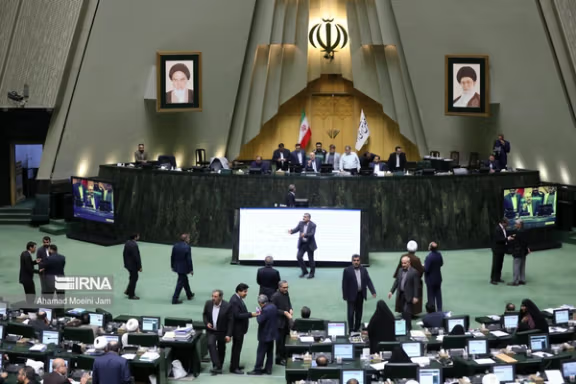
In a recent parliamentary session, lawmakers in Iran reportedly set the pay scale for government employees and retirees for the new financial year starting March 21.
The base salary for government workers was fixed at 100 million rials, while a minimum pension of 90 million rials was endorsed for retirees. The bill, presented during Saturday's session, garnered approval with 123 votes in favor, 53 against, and 11 abstentions out of 193 lawmakers out of 290 present.
The decision arrives as Iranian workers are about to receive a government-approved average minimum wage increase of 20 percent, scheduled to come into effect in March. The development unfolds against the backdrop of an alarming annual inflation rate nearing 50 percent. The timing underscores the delicate balance between consumers' purchasing power and the rising US dollar rate, currently standing at 560,000 rials. Notably, the Iranian rial depreciated by over ten percent within the past two weeks alone.
Last week, the new base monthly salary was equivalent to approximately 200 US dollars. However, a sudden decline in the value of the rial now pegs it to around 180 US dollars. The looming threat of further depreciation in the upcoming year, starting in March, presents a significant challenge, potentially diminishing the minimum wage's value relative to the dollar.
Persistent inflation and a sluggish economy have severely diminished the purchasing power of ordinary Iranians, with tens of millions falling into the category of "working poor." Experts highlight that the poverty line for residents of Tehran stands at approximately 300,000,000 rials (approximately $600) per month, three times the current minimum wage.
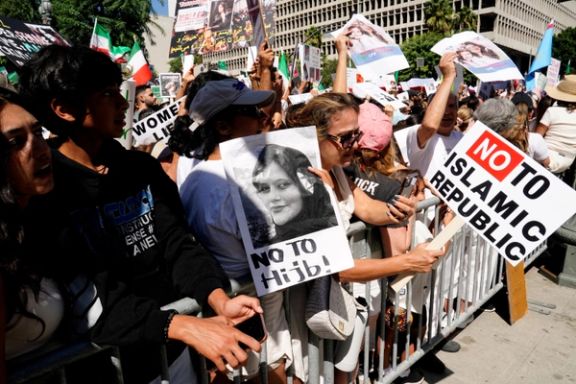
A new term was coined during the 2022-2023 Iranian protests to describe crtain individuals as “players in the middle,” who tried not to oppose the Islamic regime.
Player in the middle" (PITM) was coined to describe individuals who positioned themselves between the protesters and the regime, offering mild criticism of both sides. As useful elements for the regime, PITMs were occasionally invited to state TV programs, but they are generally disliked, not only among the protesters but also within the ruling class.
The protesters were so angry at the PITMs that they rejected figures like Mahnaz Afshar (actress) who wanted to join a protest abroad but was expelled from the rally. Other celebrities were insulted by anti-regime activists, and some disappeared from the scene. This was not just an intolerance issue, but anger at minimal cooperation with a brutal regime that was busy killing children and young people in the streets, arresting tens of thousands of people, and shooting at people’s eyes and genitals with shotgun ‘birdshots.’
A downward curve
The people who do not benefit from the status quo (more than 80 percent of the population) and are living in poverty and misery have made up their minds regarding the regime, and if they do not come to the streets, it is because of fear and not because they are satisfied. They have made their position very clear: by throwing garbage into the government’s charity boxes, attacking emergency vehicles transporting police special forces, burning the banners of Soleimani, Khomeini, Khamenei, and Hamas, turning classic car shows into a disco, chanting anti-regime slogans in sports stadiums, such as insulting the Palestinian flag, and attacking clergymen, Basijis, and hijab enforcers.
Some insiders - such as Mahmoud Karimi, a religious eulogist, and Parviz Parstouei, an actor - have recently began playing in the middle to fill the slots of absent PITMs to reduce anger towards the regime. The regime’s die-hard fans also express their wishes clearly, such as no PITMs should be seen on state TV and that the country belongs to Hezbollahis, or those who are not loyalists should leave the country.
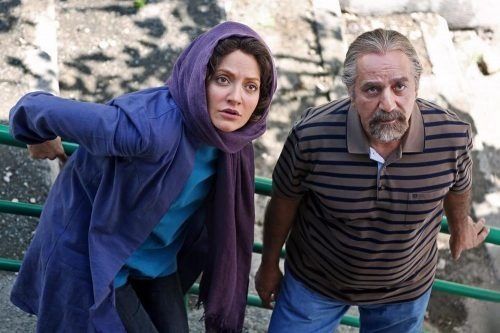
The dominant tactic of the PITMs
PITMs aim to offer mild and "non-destructive" criticism of the government while avoiding any negative consequences for themselves. As a result, in their speeches, they often target opponents abroad and emphasize their loyalty to the security forces, exemplified by figures such as Sadeq Zibakalam and Abbas Abdi, two commentators allowed to express opinions in the government-controlled media. They acknowledge some regime shortcomings, as in the case of Ahmad Zeidabadi, another pundit who is often allowed to express critical views. Like loyalists, they tend to steer clear of engaging in conversations with opponents and staunch critics of the system.
The government’s benefits from the PITMs
Debates between PITMs and staunch defenders of the regime are sometimes held on state TV to show that the regime allows a conversation with the opposition. Nevertheless, PITMs often do not engage with those who believe the regime should be toppled. They sanctify Qasem Soleimani (Parastou’i and Zibakalam) and also warn the government to reduce discontent (Abdi and Zibakalam). They consider a revolution against the regime useless or harmful (Abdulkarimi) and sympathize with the regime (Zaidabadi and Shari`ati).
The Islamist regime has consistently embraced PITMs because, on one hand, they align with its strategy of incentivizing compliance, potentially persuading staunch opponents to acquiesce or reconcile with the status quo. On the other hand, it serves as a means to demotivate and dishearten the opposition while fostering division and conflict, especially in universities where the majority of students oppose the tyrannical regime. PITMs can also manipulate public opinion and attempt to pacify dissatisfied segments of society. They promote the system's norms using various forms of discourse while subtly communicating with opponents and critics. Mehran Modiri excelled in this role.
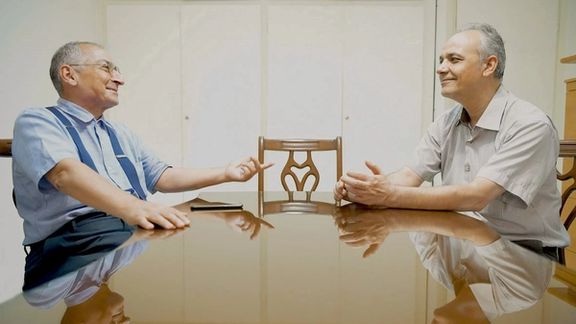
A sense of danger from the PITMs
However, the weakening of the regime after the Mahsa Revolution reached the point where the rulers felt that the PITMs could be a danger to them by voicing mild criticism. The PITMs are no longer perceived as the layer to shelter or cover government officials seen as corrupt and repressive, as they have lost credibility among the majority in society - even those who do not come to the streets to protest.
Sending the PITMs to the sidelines
In the current situation, purification of public platforms such as universities or the state TV from any kind of opposition and disloyalties is at the top of the government agenda.
Right after the Mahsa Revolution, Ali Shamkhani (the secretary of the National Security Council at the time) tried to hold meetings with the reformists to prevent them from joining the movement. These meetings quickly reached a dead end because the regime did not need mediators and wanted to end the protests only with guns, torture, and aggression.
According to a Gamaan opinion survey, 81 percent of the population say no to the Islamist regime with only 15 percent endorsing it. The reports provided by the Basij and other agents engaged in repression of street protests show that they have realized how much they are hated by the people. In one of these reports, it is stated that when agents were pursuing the protesters in the streets, people were throwing heavy objects from apartment buildings at them. Knowing how much they are hated, rulers feel that PITMs cannot be useful any longer.
Now, the regime needs "hardliners" who will be with it in difficult times and if they are given orders, they will carry them out, specially during popular protests.
The opinions expressed by the author do not necessarily reflect the views of Iran International